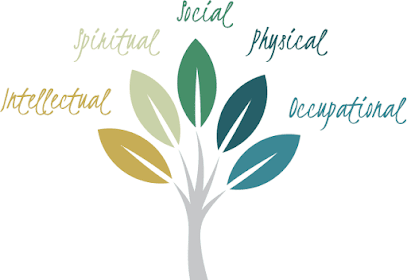Small Mantras Big Miracles
Mantras are described as vibrational formulas that
are recited silently within, spoken, or sung outwardly. They make a precise
sound, a frequency that conveys a directive into our sub-consciousness. Mantras
are invoked towards the delivery of very specific results and are repeated a
certain number of times. Some mantras may be prayer while others can be
powerful and invoke commands or demands. The Stronger the Faith, Will-power and
Emotion attached with the Mantra, the better it is. It’s like a Dynamo effect,
the more you repeat a Mantra continuously the more you get charged up with Divinity.
"I am in agreement with life and I resist
nothing," "I accept" is a simple but powerful mantra that has
been known to make the body ripe for miracles.
Let truth be your
speech,
Let righteousness
never breach,
Practice what parents
teach
Next, what the true
Guru does preach.
Their services ever
you beseech,
Then satisfy guests
each,
By that, thee God
does reach.
“Mother the first teacher,
Father the next
preacher,
Then the true Guru be
sought.
By that, God is
easily brought.”
Vedic
chanting is said to help develop one's mental powers and strength, ease stress,
and take one to a higher level of consciousness. Since the thoughts you
think create the reality you live in, why not choose positive, more expansive
thoughts to change your life for the better?
Powers of 'Bija Mantra'
Benefits of Beej Mantra:
§
Even a single word of
Beej Mantra can bring beautiful changes into your life.
§
Beej Mantras make you
more spiritual than you can ever feel or think.
§
The most wonderful thing
about Beej Mantras is that you can use them while meditating too.
§
When you chant Beej
Mantras, you invoke different Gods and Goddesses right in front of yourself,
even though you can’t see them. It is something you have to see from your
Mind’s Eye.
§
Beej Mantras are said to
have therapeutic benefits as well. They soothe your pain and relax you
mentally.
§
Some people fall asleep
chanting Beej Mantras. The surprising thing is that their sub-conscious mind
continues chanting the Mantras and hence, there is a shift in that section of
the mind as well.
§
Beej Mantra calms your
sexual energies. If your sexual energies have turned into frustrations of some
kind, it is time to put a full-stop on the same.
§
They are short, simple
and easy to remember.
Mantras:
1. OM–
This is the sound of the
Universe and represents the union of the Trinity, i.e. Brahma, Vishnu and
Mahesh.
2. Kreem-
This is the Beej Mantra
for Goddess Kali, the one whose dance is eternal. The word Ka means Maa Kaali,
Ra means Brahman and Ee means Mahamaya.
3. Hroum-
This is our personal favourite,
since it is the Beej Mantra for Lord Shiva. It gives you strength, courage and
protection from fatal diseases.
4. Hreem-
This is the Goddess
Bhuvaneshwari Beej Mantra and it has the power to make you a leader in any
field. It is said to be the best Mantra to develop leadership qualities within
ourselves.
5. Ayeim-
The most artistic Mantra
in the list, Ayeim is the word that invokes Goddess Saraswati. For wisdom,
success and knowledge, this is the Mantra you have to chant. The more you
chant, the wiser you become. It calms your mind and relaxes you, too.
6. Bhram-
This is Lord Bhairav’s
Beej Mantra. It is generally recited for victory, good health, materialistic
gains of wealth, and so on. If you are going through a court case, recite this
Mantra and you will attain success in a couple of days.
7. Dhham-
This is the Beej Mantra
for Lord Kubera and it can give you good fortune and wealth. It is recited for
monetary gains.
8. Ham-
This Mantra is related
to Kundalini and reciting it causes its awakening. It is to activate the Space
Element in the body.
HEAL
ALL 7 CHAKRAS
MANTRA - BHOOM-SAM-VISHWA-RIDA-HUM-RISHAM-DHYAANA
EACH SOUND REPRESENTS A CHAKRA
BHOOM - ROOT CHAKRA
SAM - SACRAL CHAKRA
VISHWA - NAVEL CHAKRA
RIDA - HEART CHAKRA
HUM - THROAT CHAKRA
RISHAM - THIRD EYE CHAKRA
DHYAANA - CROWN CHAKRA
Significance of Each Sound
BHOOM: I AM SETTLED
SAM: I AM CONNECTED
VISHWA: I AM CONFIDENT
RIDA: I AM IN CONTROL
HUM: I AM CLEAN
RISHAM: I AM POSITIVE
DHYAANA: I AM AWARE
Short mantras for praising all deities of three Lokas
1. AUM – ॐ
2. सर्वदेवमयो हरिः – Sarvadevmayo Hari
3. ऊँ सर्वांगसुंदराय नमः – Aum Sarvangsunderaye
Namah
4.
ॐ हनुमते नमः - Om Hanumate Namah
5.
ॐ श्री गणेशाय नम: - Aum Shri Ganeshaya Namah
6. ॐ नम:
शिवाय – Om Namah Shivaya
Short
Healing mantras
ॐ अच्युताय नमः ॐ अनन्ताय नमः ॐ
गोविन्दाय नमः
Aum Achyut aye
Namah Aum Anant aye Namah Aum Govind aye Namah
ॐ नमो भगवते वासुदेवाय
Aum Namo
Bhagvate Vasudev aye
ॐ हंसं हंसः
Aum Hansam
Hansah





